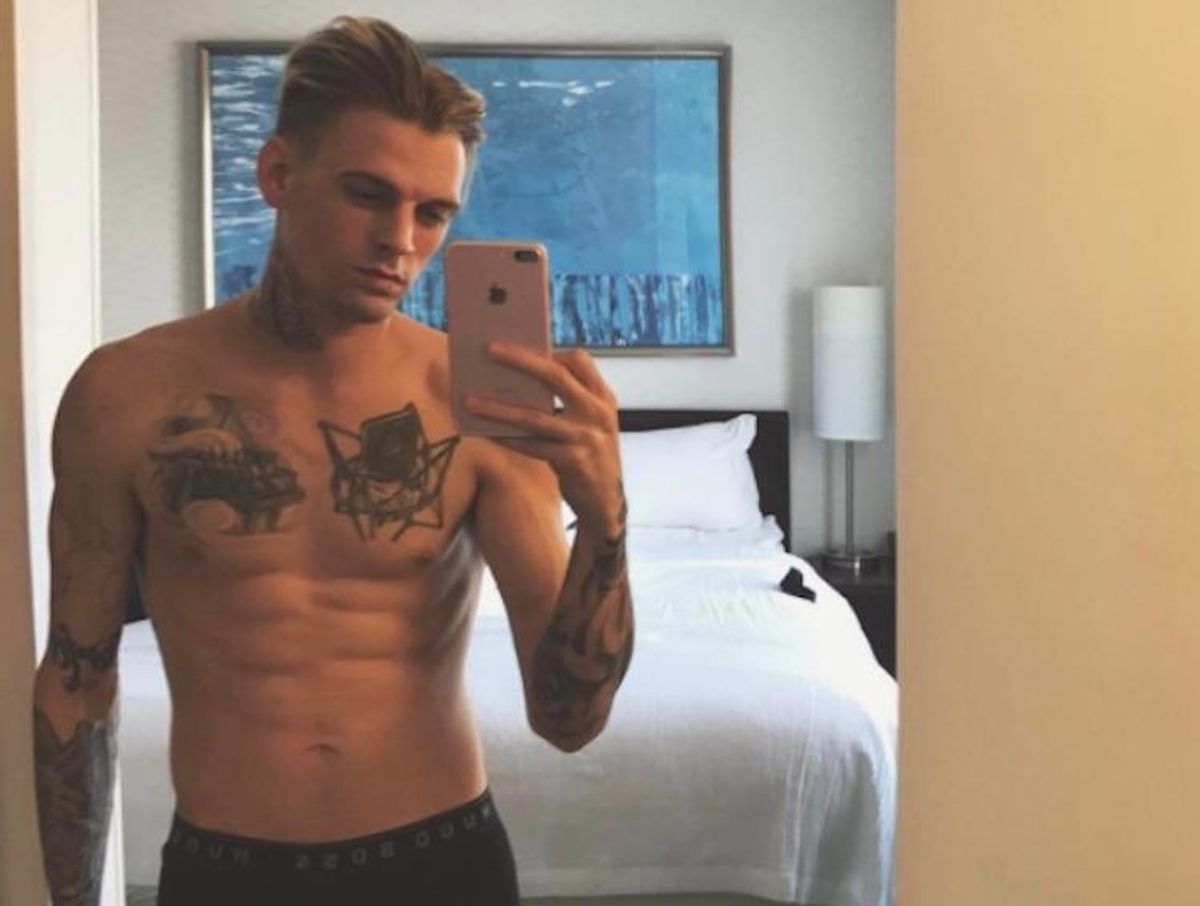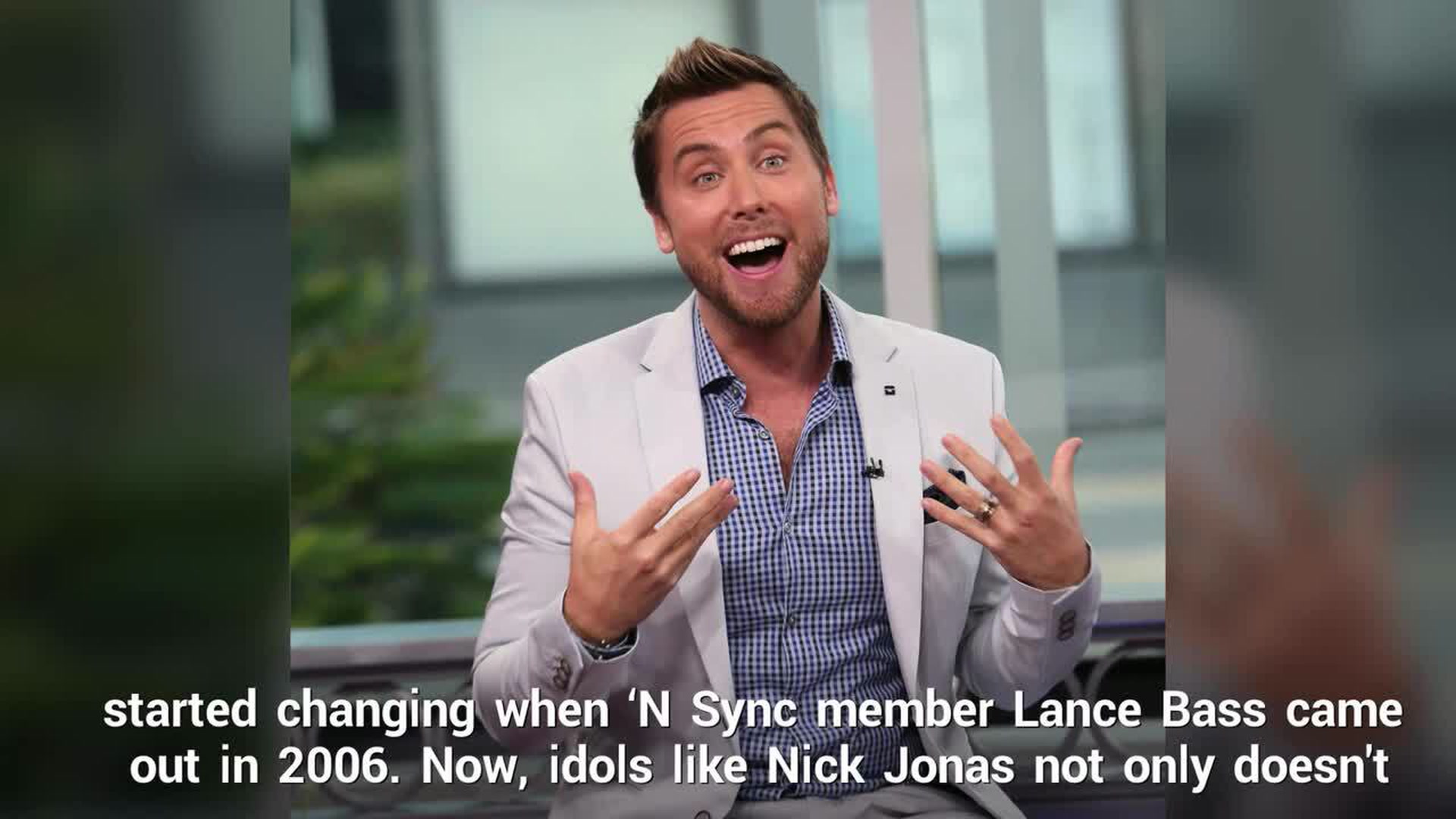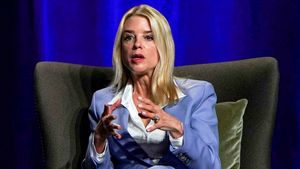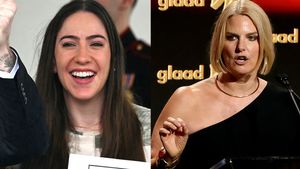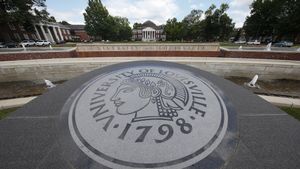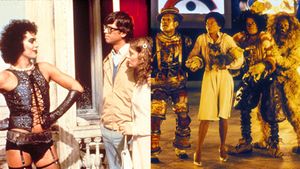Whenever the expression "teen idol" is invoked, it's usually followed by sayings like "screaming girls" or "squealing, pubescent females". What's almost always left out of the equation is that screaming boys are out there too, often being ushered into their sexuality by the sight of fetching looking male singers whose rotating pelvises are squarely aimed at the teen market.
Traditionally, teen idols are cute, wispy, and androgynous, so they're appealing without being all that threatening. But they're sexy--to members of all genders. And throughout the years, many of them were gay themselves--though in the days of Roddy McDowall, George Maharis, and Richard Chamberlain, that certainly wasn't spoken (except when Maharis was busted for soliciting sex from a man in a Shell Station in 1974. His teenie days were long gone by then anyway. So were Chamberlain's when he came out at 69.)
Whatever their sexuality, teen idols tend to exude sexuality in ways that make pulses race and knees buckle, even when it's done with subtle suggestion. When I came of age in the 1960s and beyond, TV's Tarzan, Ron Ely, helped me swing into puberty on a very long vine. I couldn't get enough of that show, and was relieved that my parents never figured out why. I was also raving mad for a dimpled TV actor/singer Bobby Sherman, who always wore very tight pants, and David Cassidy, the long haired and pretty heartthrob from TV's rockin' romp The Partridge Family, who also seemed to paint his clothes on. (Later on, Sean Cassidy, David's younger half-brother, melted young hearts while scoring as a singer and TV star himself for a while.) They were all beautiful, smiling, and engagingly packaged, with nice hair, and they perhaps unwittingly made things easier for young gays looking for some visual icons to hang their hormones onto.
When you're first developing sexual feelings, the omnipresent sight of these young 'throbs in carefully half-buttoned shirts or skimpy bathing suits tends to confirm them. Watching them make appearances on talk shows and variety shows and seeing the reaction from the girls in the live audience underscores the fact that your feelings are on target--these are attractive people worth yelping about. In the '60s and '70s, I would routinely buy teen magazines, and it didn't look weird to people since I was a teen, after all--but I was actually buying them to ogle the sexy photos of my favorite male stars and burn them into memory for all time. (I can still remember a hot shot of Mickey Dolenz from the pre-fab musical group the Monkees, looking adorable in swimwear. He was my favorite Monkee--though I wouldn't have thrown any of them out of my fantasies.)
It's sad the way that generation of teen idols obviously held onto some issues about their gay connection, preferring not to rock the love boat. Even in the '90s, when I interviewed my old crush David Cassidy on the phone, he seemed to get nervous when I asked him about his gay fans; he promptly wrapped up the interview. Dial tone! Some teen idols are afraid of scaring away their female fans by admitting guys are into them too. Maybe they think the girls can't fantasize that the idol is their boyfriend if they know boys are doing the same. (And whatever the idol thinks, there's always an impresario projecting his own often self-loathing demands.)
Related | Adam Lambert Stands His Ground on Glam-Rock Single, 'Two Fux'
But not all of them are so cowering. The strictures of the teen world changed with former 'N Sync member Lance Bass coming out in 2006. Lance said he purposely waited till the group was kaput, so as not to overshadow them all with this gossip. But at least it woke femme audiences up to the fact that their favorite male wiggling his tuchus up there all those years liked guys--a lot. An even greater advance happened when rouged singer Adam Lambert came out in 2009, three weeks after the finale of that season's American Idol. I'd been saying Lambert should have come out even before that, but being honest as his career was about to launch was still a great move, and sent an important message. A teen idol can be gay. And you know what? The girls still screamed for him anyway.
With examples like that, today's idols seem blessed with a whole new brand of pixie dust. Nick Jonas not only doesn't mind having gay fans, he dropped his pants for photos, played gay bars, gives yay-gay speeches, and caters to us like crazy. Others--like Justin Bieber (who seems to have calmed down somewhat) and One Direction--carry on the cheekboned androgyny that makes both boys and girls weak. Their amorphously sexy ways are no doubt helping a whole new generation of burgeoning gays feel mightily awakened.
Related | Aaron Carter Never Labeled His Sexuality, But Is It His Responsibility?
And just recently, the wiry Aaron Carter--younger brother of Backstreet Boys' Nick Carter--announced that he was breaking up with his girlfriend because she couldn't handle his bisexuality. (She later voiced a disagreement with that, saying it wasn't a problem for her at all.) Years ago, I met Aaron at the opening of a gay club, and when I asked what brought him there, he said it was "friends and family night." His obviously gay handler--a mature man--suddenly got nervous and pulled Aaron away from me. But it's all good now. Aaron came out as bisexual. Yay, teen idol! Ain't no lie, baby, bi, bi bi.
THE PRINCE AND THE SHOWGIRLS
The prodigiously talented Hal Prince has won 21 Tonys (including three special ones) for directing and/or producing important works of musical theater like Company, Follies, Evita and Phantom of the Opera. That leads to Prince of Broadway, a revue of his work, though revues generally make more sense when they deal with the people who actually wrote the material. (2010's Sondheim on Sondheim was an incisive look at the composer's oeuvre, complete with Sondheim's own commentary via video). In this case, we're looking at snippets that Prince directed--and this time, it's directed by him while codirected by Susan Stroman, who also did the choreography. We're seeing the work, naturally, with different actors, but also with lower production values, and also with limited narration, which has the cast assuming the role of Prince and offering airy tidbits while studiously perching glasses on their heads as he famously does. After being informed that the young Prince aggressively pursued director George Abbott for a job, we're told that Prince has dared to tackle unconventional ideas for musicals; that he's worked with talented people; that luck is part of the game; and that sometimes an artistic success is a commercial failure and vice versa. There's precious little about his creative process, his approach to material and actors, or his actual choices.
Fortunately, the talented and game cast delivers some knockout set pieces, as a segment on one show (featuring several songs from it) drifts to a quick set change and a segment on another show. Broadway veteran Emily Skinner does a nice "Send in The Clowns" (from A Little Night Music) and a potent "Now You Know" from Merrily We Roll Along. (In that case, I liked the choice of a not so obvious number. In other instances, the biggies are included--like "Don't Cry For Me, Argentina"--because of their importance, and also because the tourists would no doubt riot in the aisles over their exclusion.) Brandon Uranowitz and Bryona Marie Parham are terrific in a She Loves Me segment, and Parham delivers again by belting out "Cabaret" from that groundbreaking show (though she's made to weirdly lean on the word "corpse," as if we've never heard that joke before). Tony winner Karen Ziemba is best as a zesty Mrs. Lovett in a Sweeney Todd song. And Tony Yazbeck scores with an angstily danced "The Right Girl" from Follies. ("Waiting For The Girls Upstairs" from the same show is hauntingly done by the ensemble.) Perhaps my favorite is Chuck Cooper, an unsung Broadway hero, who makes the max out of numbers from Damn Yankees, Fiddler on the Roof, and Showboat. But then there will be some clunkers. And some lame bit of narration. And the realization that you've seen all these shows done with more expensive chandeliers.
By the finale, when the entire cast sings an original Jason Robert Brown song called "Do The Work," you're wondering if you're supposed to do the work to connect the show's many dots. Still, Prince of Broadway is a mixed bag that theater maniacs might find worth grabbing into, for the showmanship and history it celebrates.
